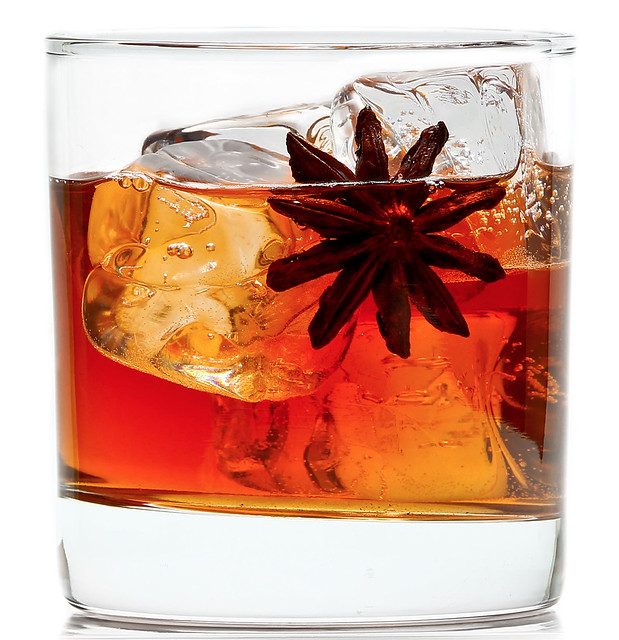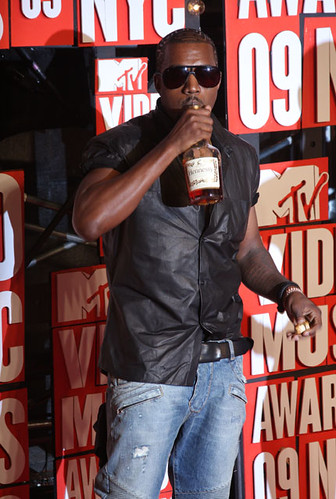![]()
The proverbial ivory tower of academia, where some intellectuals live and work in an insulated world separate from the real world, was never more on display than in this “study” about which alcohol brands are mentioned most often in popular songs. Conducted by Boston University and Johns Hopkins, their survey of popular music, Alcohol Brand References in U.S. Popular Music, 2009–2011, was published in the December issue of the journal Substance Use & Misuse. The researchers looked at the Billboard charts in four music types — Urban, Pop, Country, and Rock. Here’s the abstract:
This study aimed to assess the prevalence and context of alcohol brand references in popular music. Billboard Magazine year-end charts from 2009 to 2011 were used to identify the most popular songs in four genres: Urban, Pop, Country, and Rock. Of the 720 songs, 23% included an alcohol mention, and 6.4% included an alcohol brand mention. Songs classified as Urban had the highest percentage of alcohol mentions and alcohol brand mentions. The context associated with alcohol brand mentions was almost uniformly positive or neutral. Public health efforts may be necessary to reduce youth exposure to these positive messages about alcohol use.
Because most journals require you to pay large sums to read them (or be an academic yourself), most of the information about this one comes from an article about the study, Music Artists Love to Sing About These 4 Alcohol Brands, which appeared on Futurity, a website covering “research news from top universities.” In it, the researchers reveal how out-of-touch they are with their subject. Of the more than one-thousand alcohol labels sold today, they noted, “only four brands show up often in the lyrics of popular songs.” Those four were Hennessy, Grey Goose, Jack Daniel’s and Patron; a cognac, vodka, tequila and whiskey. “They accounted for more than half of the alcohol brands named in songs from Billboard’s most popular song lists in 2009, 2010, and 2011.” Here’s the insights from one of the researchers.
“You would expect there would be hundreds of brands that are randomly mentioned,” says Michael Siegel, a professor of community health sciences at Boston University’s School of Public Health. “But we found that those top four accounted for 52 percent of all the brand mentions. That can’t be coincidental.”

Are you sure?
Apparently, they also found that “alcohol use was portrayed as overwhelmingly positive in lyrics, with negative consequences almost never referred to.” I don’t think they listened to enough country music which, traditionally at least, was all about the consequences of drinking too much. But all kidding aside, why would a singer sing about any negative aspects of drinking? They’re not PSAs. The goal of pop music is to entertain, period. It’s not to educate or warn kids about the dangers of overindulging. They also seem worried because — gasp — kids also listen to the same music as adults, which the researchers found “alarming” because in their mind that meant the music was “promoting” drinking.
But after all that fretting, professor Michael Siegel admits that no “causal connection” was found between the music actual consumption, stating “further research is needed.” He also mentions that they also found that some of the artists — gasp — had sponsorship deals with some of the alcohol brands. To the researchers, that means that listeners are being marketed to, because in the ivory tower that simply has “to be recognized as marketing, not random chance.”
This so-called “study” examined (really, examined? They just listened to some music, didn’t they?) 720 songs. Of those, less than one-quarter (23.2%, or 167) mentioned alcohol. And just 6.4% (or 46 songs) dropped the name of a specific brand of alcohol, of which 51.6% mentioned one of the top four brands; Hennessy, Grey Goose, Jack Daniel’s and Patron. Of the four music genres they surveyed, alcohol was mentioned most often in “so-called urban songs (rap, hip-hop, and R&B, with 37.7 percent), followed by country (21.8 percent), and pop (14.9 percent).” They further discovered that “Tequila, cognac, vodka, and champagne brands appeared more prevalently in urban music (R&B, hip-hop, and rap), while whiskey and beer brands were more common in country or pop music. Surprisingly, there was no alcohol referred to in the rock-genre music examined.” Maybe that was Christian rock, because I can name more than a few rock and roll songs about beer alone, but maybe they’re not popular right now.
Is anyone not living in the clouds surprised by that? But let’s take a closer look at reality regarding these brands. Hennessey is hands down the best-selling brand of cognac in not just the U.S., but worldwide. Likewise, Grey Goose is the best-selling vodka. Jack Daniel’s is the best-selling American whiskey worldwide, too. At this point, you probably won’t be too shocked to learn that Patrón is the biggest selling ultra-premium tequila in the US. So when the researchers say it “can’t be coincidental” that “those top four accounted for 52 percent of all the brand mentions,” it’s not, but it’s not a conspiracy, either. They’re each the most popular brands of their type, which is the more logical reason why they’re the ones most often mentioned in songs. You don’t need a slide rule to figure that out.
As long ago as when I worked for BevMo, and saw sales figures for spirits on occasion, those were popular brands, especially among the same demographic as might listen to urban music. The brands were, and most likely still are, status symbols in some communities, which would also account for their popularity in song lyrics. That’s the reason these companies are looking for sponsorship opportunities with musicians and music events, not the other way around.

The researchers, showing just how biased their thinking is, claim that their concern over advertising stems from a belief that “[a]t least 14 long-term studies have found that exposure to alcohol marketing in the mass media increases the likelihood that young people will start drinking, or if already drinking, consume more.” And yet a recent GfK Roper Youth Report on the Influences on Youth Decisions about Drinking clearly shows that since at least 1991, advertising is at the very bottom of the reasons that influence kids to drink, age 13-20, accounting for just 1%, though for all media (defined as a including TV, radio, magazines, and Internet) it’s twice that, but of course that’s still only 2%. It’s hardly the scourge that the prohibitionists continue to insist it is.
It’s hard to see this as anything more than researchers out of touch with the real world of music or alcohol, making pronouncements from their ivory tower without really understanding the context of what they’re commenting on, mis-analyzing the results as a consequence. For example, professor Siegel suggests that “[o]ne intervention would be to teach young people ‘media literacy skills’ that would educate them about marketing techniques.” That’s rich, considering most young people are probably far more media savvy than the average college professor.
But beyond that, the idea that music made by and for adults, but also listened to by children, is rarely, if ever, the danger it’s believed to be. Or that adults singing about adult situations, in this case alcohol, for adults to listen to should not be permitted to do so on the off-chance that kids might hear it too. But that’s typical of the ridiculous lengths and logic to which the prohibitionists will go in promoting their agenda with junk science. This type of thinking suggests that they believe there should be two worlds, one that’s exclusively adult, walled off completely lest the kiddies be corrupted by seeing and hearing adult entertainment. That advertising is so often the bogeyman, despite it having so little actual influence, has more to do with the strategy that prohibitionists have employed since the day after prohibition was repealed. Every generation, they claim, is being corrupted and ruined by alcohol advertising. And yet, each generation seems to turn out just fine, don’t they? Those same youth from the previous generation grew up to become among the next generation of researchers claiming how this next group of kids will be ruined by being advertised to by alcohol companies, and each time they miss the irony that they, too, grew up seeing alcohol advertising, as well. Maybe it’s the air up in their ivory tower that makes them so forgetful, that along with being detached from reality. Can I assume Michael Bolton, Kenny G and Barry Manilow are playing on the radio?

Nice article about the next “study” (after half-million EUR czech study about the habits of Czech citizens to drink beer with some “tapas”). Maybe the next will be for the campaigns of all alcohol industries related with the music. And please, don’t forget the jazz.
For sure,, with your permission, i’ll post a link in my blog/G+, thanks, Jay.
What a bunch of pretentious BS that “study” is … not just “Ivory Tower”, but ivory-brained!